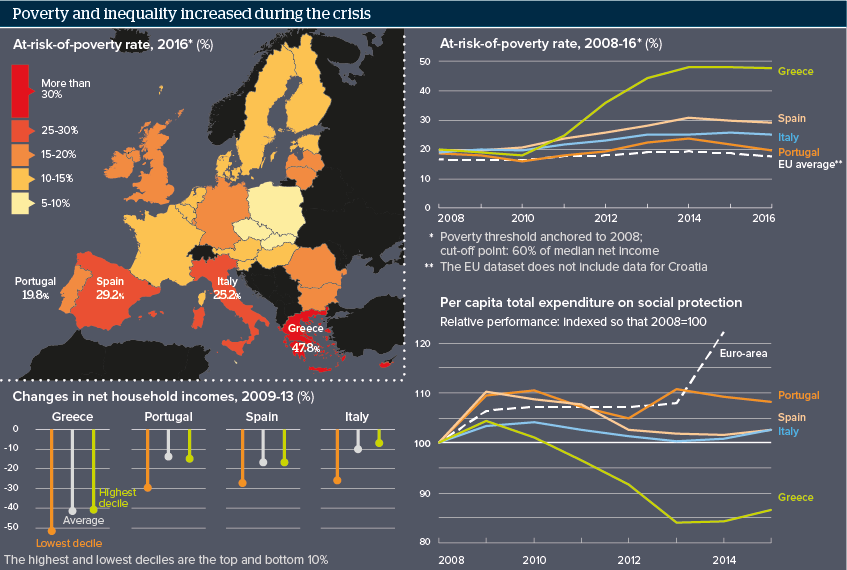Poverty in Southern Europe will have political effects
Ten years after the crisis, Italy, Greece, Portugal and Spain still have some of the highest poverty rates in the EU
Source: Eurostat
Outlook
Almost a decade after the onset of the global financial crisis, some of its negative effects are still being felt in Southern Europe. This has political effects: most recently, the anti-establishment Five Star Movement -- which promises a minimum monthly income of up to 780 euros (965 dollars) -- emerged as the largest party in the March 4 Italian elections.
As the government formation process in Italy is underway, frustration with the limits the EU’s fiscal targets place on government spending could come to the fore. Sticking to the targets could fuel Euroscepticism; breaching them could lead to tensions between Rome and fiscally conservative northern EU member states.
Impacts
- Portugal squared the circle by easing austerity while sustaining budgetary discipline and is now considered an EU post-crisis success story.
- Entrenched high youth unemployment could produce ‘lost generations’, lowering long-term GDP growth potential.
- Pensioners in all four countries are underrepresented among the poorest and often play a key role in supporting family members.
- Vulnerable groups without strong lobbies such as children and the unemployed are overrepresented among the poorest.
See also
- Italy’s Conte may not succeed in fighting poverty - Jul 18, 2018
- Spain’s ‘lost generation’ may alter political dynamics - Jul 6, 2017
- More graphic analysis
